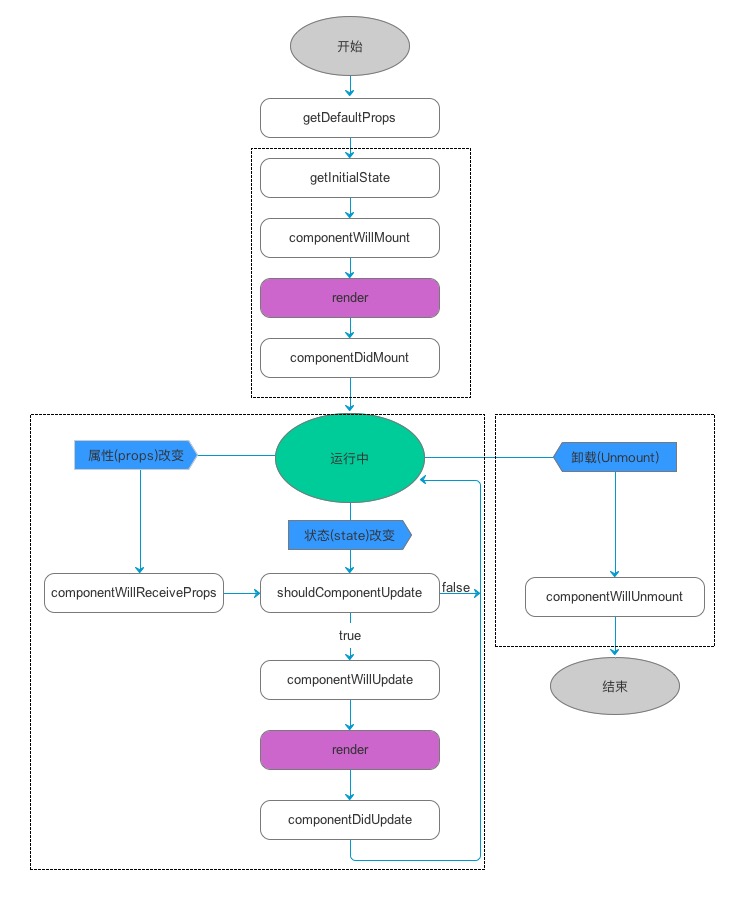React Native生命周期

代碼如下:
'use strict';
import React, { Component } from 'react';
import {
StyleSheet,
View,
} from 'react-native';
class test extends Component {
constructor(props) {
super(props);
this.state = {
};
}
componentWillMount() {
console.log('componentWillMount');
}
render() {
console.log('render');
return (
<View />
);
}
componentDidMount() {
console.log('componentDidMount');
}
componentWillUnmount() {
console.log('componentWillUnmount');
}
componentWillReceiveProps(nextProps) {
console.log('componentWillReceiveProps');
}
/*
通常不用寫,添加shouldComponentUpdate方法一般都會拖慢組件的更新速度,
詳見:《什麼時候要在React組件中寫shouldComponentUpdate?》
http://www.infoq.com/cn/news/2016/07/react-shouldComponentUpdate
shouldComponentUpdate(nextProps, nextState) {
}
*/
componentWillUpdate(nextProps, nextState) {
console.log('componentWillUpdate');
}
componentDidUpdate(prevProps, prevState) {
console.log('componentDidUpdate');
}
}
const styles = StyleSheet.create({
});
module.exports = test;
